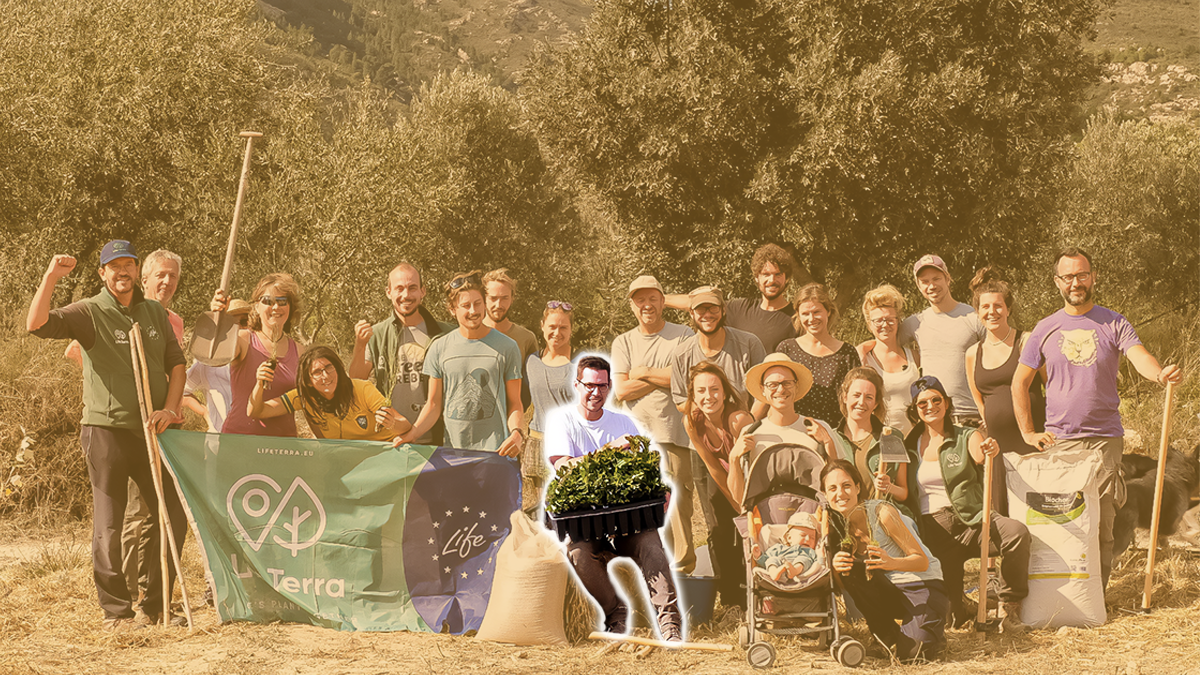In a world where ecological challenges are mounting, it is a ray of hope to see young individuals like yourself stepping up to take charge of the environment. The QSImpACT Award “Eco-Champion of the Year” is a testament to QS ImpACT’s unwavering commitment to regenerating ecosystems and conserving the fragile balance of nature. Through your volunteering efforts, you are not only restoring what has been damaged but also preserving what is left.
This award is for the most impactful eco-champion of the year!
The Story to Tell
The United Nations Decade on Ecosystem Restoration, running from 2021 to 2030 urges everyone to scale up restoration efforts. It calls for breathing new life into our degraded ecosystems, offering a brighter future for all. Ecosystem restoration is not just about healing the scars on our planet; it is about securing a healthier future for all living beings.
Eco-Champion of The Year Award!
The QSImpACT Award “Eco-Champion of the Year” focuses on ecological restoration through the natural regeneration of forests, water sources, and biodiversity. It emphasises the importance of a long-term impact on the community and aligns with the United Nations 17 Sustainable Development Goals (SDGs). For an outstanding youth who has been a key leader in the regeneration of their shared ecosystem. Through volunteering efforts, they should have helped their community in the regeneration efforts of ecosystems that have been degraded or destroyed, as well as conserving existing ecosystems.
SDG 11 – Sustainable Cities
It is important to demonstrate your efforts to address urban challenges such as upgrading slums, improving access to affordable and sustainable transportation, and enhancing urban planning and management. Your contributions should align with these specific sub-goals to create positive, lasting impacts in their communities.
SDG 13 – Climate Action
The focus will be on efforts to strengthen resilience, integrate climate change measures into national policies, promote climate education and awareness, and support the mobilisation of financial resources for developing countries. Special attention will be given to initiatives that empower marginalized communities and prioritize the needs of vulnerable groups.
SDG 14 – Life Below Water
The focus must be on efforts to reduce marine pollution, manage and protect marine ecosystems, address ocean acidification, regulate fishing practices, establish protected marine areas, promote sustainable fisheries management, enhance research capacity, support small-scale fisheries, and uphold international laws for ocean conservation.
SDG 15 – Life on Land
Award criteria will emphasize your efforts to conserve forests, restore degraded land, protect mountain ecosystems, prevent habitat degradation, combat poaching and trafficking, control invasive species, integrate biodiversity into planning, and mobilize financial resources for the conservation and sustainable use of ecosystems.
How A Winner is Chosen
The criteria for this award are meticulously designed to evaluate the contributions of young eco-champions in various aspects of ecological restoration. This award aims to encourage the volunteering efforts of youth related to ecological restoration. This includes the natural regeneration of ecosystems through the restoration of forests, water sources, and biodiversity within a certain timeframe.
If you want to be considered, please submit your impact report to [https://qsimpact.org/impacts/] before 11:59 PM GMT Dec 15th, 2023.
Let’s Break Down the Criteria
Participants will have to share the results of their efforts to restore an ecosystem by uploading their ImpACT report. Please upload your submission to be considered. Below is a breakdown of the main measurement criteria.
- Agroforestry
- Hydrology
- Preservation
Agroforestry
This category assesses the impact of tree management, native seed preservation, and soil regeneration. It measures the number of native trees and shrubs planted and cared for, as well as the management of invasive or diseased trees. Native seed preservation is evaluated based on the variety of seeds preserved. Soil regeneration is quantified in terms of biochar and compost applied, along with sustainable animal grazing practices.
Hydrology
This aspect focuses on earthworks to harvest rainwater and the connection of roofs to rainwater catchment systems, emphasizing the importance of responsible water management.
Preservation
It evaluates the amount of land or water surface placed under preservation, conservation, or protection and the amount of trash diverted from nature and responsibly disposed of.
The Winner Receives
- Attend the UNEP events as an individual representative
- Be featured in the 2024 QS Insights Magazine
- Receive an Exclusive QS ImpACT Badge
You Can Be the Eco-Champion of the Year
The “Eco-Champion of the Year” award is not just a token of appreciation; it is a symbol of a broader movement. It encourages youth to be stewards of the environment, to take charge of the planet’s future, and to lead by example. By restoring and preserving ecosystems, these young eco-champions are leaving a legacy, one that future generations will inherit with gratitude.
The award is a call to action, a reminder that we all have a role to play in restoring the planet. The accomplishments of the past serve as inspiration for what the future can hold. The QS ImpACT Award “Eco-Champion of the Year” is a beacon of hope, a reminder that the power to restore and conserve lies within each of us.


Add a Comment